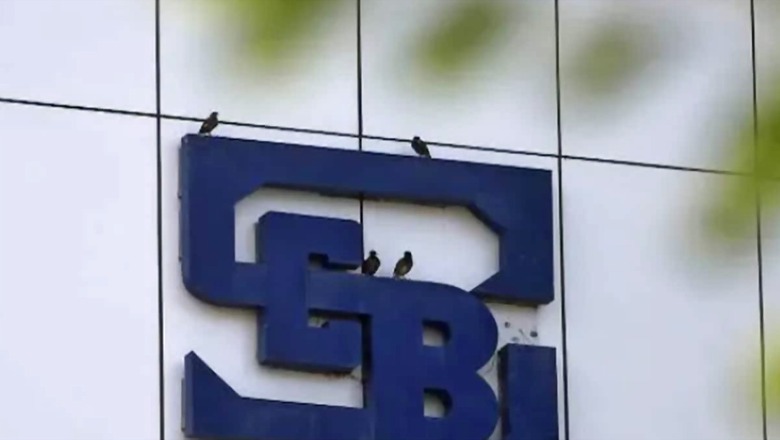
views
The Securities and Exchange Board of India (SEBI) has been instrumental in bringing many transformational changes, with a continued focus on improved transparency and governance. With the growth in the industry, the role of mutual fund trustees in ensuring the protection of interests of the mutual fund investors has become even more critical. To streamline the responsibilities of the trustees and asset management companies (AMCs) and to ensure that trustees can devote their attention to their fiduciary obligations and supervisory roles. SEBI on February 9 this year issued a new consultation paper on ‘Review of Role and Obligations of Mutual Fund Trustees’ to seek public comments.
Focus on ‘Core Responsibilities’
SEBI’s consultation paper wants trustees to evaluate the AMC’s compliance independently and not just solely rely on the AMC’s submissions or external assurances. The AMCs, in turn, should submit exception reports or analytical information to the trustees to add value to their oversight role. Suitable mechanisms and systems at the AMC’s end are necessary to generate data, reports, and alerts for evaluation and due diligence by the Trustees.
We feel that this can help overall governance significantly. Further, closer supervision by the trustees would, on one hand, promote a more transparent and process-driven culture in the functioning of the AMCs and on the other hand increase the faith of investors in the system. Given that India’s AUM to GDP ratio is still significantly lower than developed markets, the importance of winning the trust of investors cannot be emphasized enough. Also, given the fact that mutual funds are arguably the most important conduit in channelising investor funds into economic purposes, the importance of this goes to a different paradigm altogether.
Availing Services of Specialists
To ensure that trustees devote time and attention to their core responsibilities, SEBI wants trustees to rely on professional agencies such as audit firms, legal firms, and merchant bankers. etc for carrying out due diligence on behalf of the trustees in other areas. We like this approach for two key reasons. First, it is vital for trustees to devote adequate time to do justice to their core responsibilities to protect investor interests. Secondly, delegating due diligence activities to specialized agencies, can ensure that these tasks are carried out with a high level of expertise, accuracy, and attention to detail by agencies that have the necessary resources, tools, and expertise.
Setting Up of Unit Holder Protection Committee
SEBI has proposed that a Unit Holder Protection Committee (UHPC) may be constituted by the board of AMC. The UHPC shall be expected to ensure the redressal of unit holders’ grievances, investor education, and awareness, etc. The UHPC of AMC shall have at least three directors as members of which at least two-thirds of members shall be independent directors of the AMC.
In the context of corporate governance, an independent director is a board member who does not have any significant relationship with a company and is not a part of its executive team or involved in daily operations. We strongly believe that ensuring a majority of independent directors in the committee will enhance its effectiveness to serve the interests of the unit holders. By bringing in diverse perspectives and unbiased expertise, the committee can better oversee the management of the mutual fund and ensure accountability, transparency, and sustainable growth for all stakeholders.
AMCs to Ensure Operational Discipline
To ensure that trustees can devote attention to the fiduciary obligations and supervisory role cast upon them, rather than being burdened with operational responsibilities, SEBI has proposed that certain duties of the trustees which are operational in nature may be delegated to the AMC.
Some of these duties are: All systems are in place prior to launch of any scheme by the AMC, Calculation of any income due to be paid to the mutual fund and also of any income received in the mutual fund for the holders of the units of any scheme, No change in the fundamental attributes of a scheme without carrying out the necessary processes provided in the Regulations, Periodically review all service contracts such as custody arrangements, transfer agency of the securities etc. Finally, exercising due diligence in all operations of the AMCs.
While we completely agree to this suggestion in spirit, we feel that periodic operational due diligence conducted by professional agencies can provide an additional layer of assurance regarding the processes in place, internal controls adopted, and the design and execution of the operational infrastructure. Such measures will not only instil confidence in the system but also serve as a critical safeguard against potential operational failures and the resulting loss.
Conclusion
The Indian mutual fund industry has seen a significant surge in the past decade, with assets under management (AUM) increasing fivefold from Rs 7.93 lakh crore in November 2012 to Rs 39.60 lakh crore in January 2022. While the growth indicates an increase in financial literacy among Indian investors, it is also representative of the trust that they have placed in the mutual fund industry. And with it, an increase in regulatory oversight to safeguard the interests of investors.
However, as more measures are implemented to promote better governance, it is important to acknowledge that the expense ratio of mutual funds may also rise. While this may be a concern for some investors, it is important to note that increased transparency and better governance can lead to improved investment outcomes over the long term. This may be an incentive to accept these additional costs in the interest of building a stronger and more sustainable mutual fund industry. Ultimately, the benefits of a well-governed industry that fosters trust and transparency will far outweigh the short-term costs.
(The author is head of product management & digital sales at ICRA Analytics. Views are personal.)
Read all the Latest Business News here




















Comments
0 comment